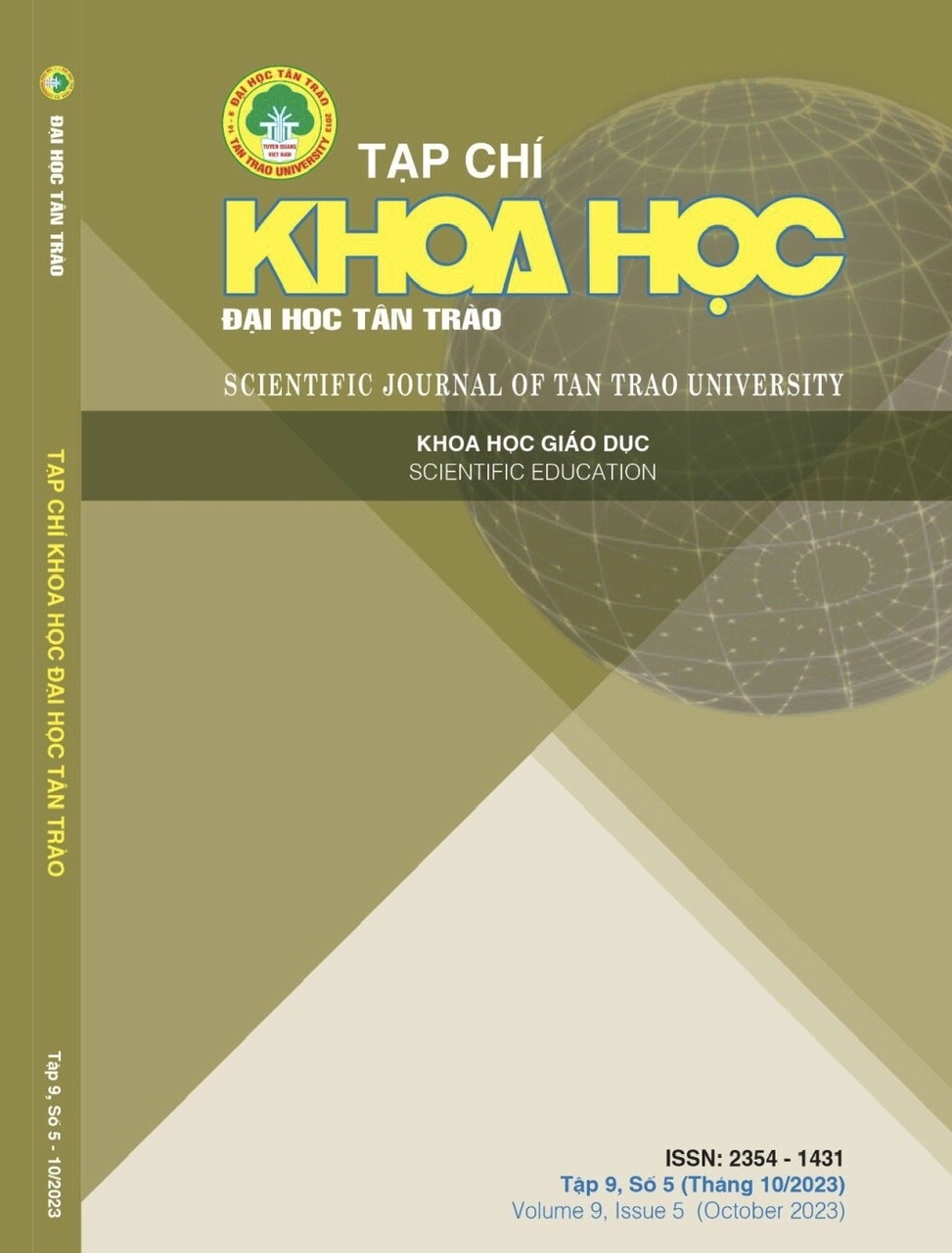THE IMPORTANCE OF HO CHI MINH THOUGHTS TO THE CURRENT ERA'S PATRIOTISM MOVEMENT
DOI:
https://doi.org/10.51453/2354-1431/2023/1039Abstract
Emulation was viewed by Karl Marx, Friedrich Engels, and Lenin as a fundamental human need resulting from life itself. Competition unavoidably emerges because members of society are constantly in contact with one another. Competition will be replaced in a socialist society by competition among the workers involved in the manufacturing process. Lenin declared: "Our task now, when the socialist government is in power, is to organize emulation" following the success of the Russian October Revolution. The revolutionary forerunners, however, did not speak of rivalry in the area of material production until after the proletariat had gained control. The idea of patriotic emulation (patriotic emulation) is a summary of numerous new ideas and arguments that Ho Chi Minh added and imaginatively expanded. The meaning of Ho Chi Minh's ideology in relation to the patriotic emulation movement in the current moment in Vietnam is analyzed and clarified in this article, which also highlights theoretical questions about Ho Chi Minh's ideology on the subject.
Downloads
References
Vietnam's Communist Party (2021). 12th National Delegates Congress. National politics Truth, Hanoi, publisher.
Ho Chi Minh (2000). Complete set. t.5. Publisher. National politics Truth, Hanoi.
Ho Chi Minh (2000). Works Complete, Volume 6. Publisher. National politics Truth, Hanoi
Ho Chi Minh (2000). Complete set. t.12. Publisher. National politics Truth, Hanoi.
Central Theoretical Council (2021). New points in the documents of the 13th Party Congress. Publisher. National Politics Facts. Hanoi.
Downloads
Published
How to Cite
Issue
Section
License

This work is licensed under a Creative Commons Attribution-ShareAlike 4.0 International License.
All articles published in SJTTU are licensed under a Creative Commons Attribution-ShareAlike 4.0 International (CC BY-SA) license. This means anyone is free to copy, transform, or redistribute articles for any lawful purpose in any medium, provided they give appropriate attribution to the original author(s) and SJTTU, link to the license, indicate if changes were made, and redistribute any derivative work under the same license.
Copyright on articles is retained by the respective author(s), without restrictions. A non-exclusive license is granted to SJTTU to publish the article and identify itself as its original publisher, along with the commercial right to include the article in a hardcopy issue for sale to libraries and individuals.
Although the conditions of the CC BY-SA license don't apply to authors (as the copyright holder of your article, you have no restrictions on your rights), by submitting to SJTTU, authors recognize the rights of readers, and must grant any third party the right to use their article to the extent provided by the license.


